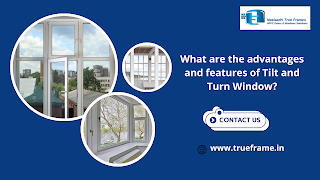What is the impact of sliding doors on the appearance of interior design?
Introduction:
The sliding door is emerging as a quintessential element of interior design that defines spaces with elegance and practicality. These versatile features can be used in homes, offices, and commercial spaces to enhance both the aesthetics and function of a space. We will explore the many ways in which sliding doors contribute to the aesthetic appeal of an interior and leave a lasting impression.
Seamless Elegance
Sliding doors create a seamless flow between rooms, creating a feeling of openness and spaciousness. Sliding doors do not encroach on the space when they are opened, as opposed to hinged doors. This streamlined feature complements minimalist design philosophies in which simplicity and efficiency are placed at the forefront. Sliding doors provide a sleek and polished appearance to interiors owing to their clean lines.
Enhanced Space Utilization
Every square inch counts in a small space. Because sliding doors do not require the same swing radius as conventional doors, they are an excellent solution for optimizing limited spaces. These doors glide effortlessly along a track, maximizing the amount of space available in small apartments, studios, and offices. The efficient use of space enhances the overall appeal of the interior by creating a tidy and uncluttered appearance.
Visual Connection and Natural Light:
Sliding doors, particularly those made of glass, enhance the feeling of openness and interconnection by visually linking different areas. The openness of these designs allows natural light to flow freely into the interior, which brightens up the space and creates a sense of continuity. A sliding glass door that leads to a patio or balcony, for example, blurs the boundaries between interior and exterior spaces. By bringing light into a space, it not only makes it appear larger but also adds warmth and vibrancy to it.
Customization and Versatility:
An important characteristic of sliding doors is that they are adaptable to a wide variety of design themes. Sliding doors are available in a wide variety of materials, including wood, glass, metal, and even mirror finishes. You can choose between a rustic charm with wooden panels or a futuristic vibe with frosted glass. Designers can create cohesive looks that are tailored to the tastes of individuals due to this versatility.
Creating Multifunctional Spaces:
Sliding doors are uniquely capable of transforming spaces and enabling them to be used in several different ways. Using a sliding door, you can divide a living room from a home office, giving you privacy when you require it and openness when you prefer it. Modern homes are characterized by a high degree of flexibility, which makes this kind of adaptability especially useful. Sliding doors enhance the usability and aesthetic appeal of interior spaces by providing dynamic space division.
Modern Technology Integration:
Sliding doors have become more attractive due to the integration of modern technology. Automated sliding doors enhance the convenience and sophistication of interiors, adding a touch of luxury. The use of remote controls and motion sensors ensures that sliding doors are not only stylish but also easy to use.
Statement Pieces and Artistic Appeal:
Beyond their functional benefits, sliding doors can serve as statement pieces that elevate the design narrative of a space. Bold patterns, intricate designs, or colourful panels can turn a simple sliding door into a focal point. Additionally, the use of mirrored sliding doors adds depth and reflects light, making rooms feel more spacious and glamorous.
Eco-Friendly Choices:
By incorporating sliding doors made from sustainable materials, you are demonstrating your commitment to eco-friendly design. With energy-efficient glass or recyclable frames, sliding doors reduce environmental impact while adding a modern aesthetic to interiors. Style and sustainability are balanced in this way, aligning with the growing preference for green design solutions.
Enhanced Privacy and Sound Insulation:
Even though sliding doors are often praised for their openness, they also provide a sense of privacy. If properly sealed and materials are chosen, sliding doors can provide effective sound insulation and are therefore suitable for use in bedrooms, home offices, or study areas. There is a balance between openness and seclusion that contributes to their versatility and appeal.
Timeless Appeal:
The use of sliding doors in interior design has transcended trends and become a timeless component of the space. They remain relevant and attractive because of their ability to adapt to changing styles and preferences. Sliding doors have evolved, blending traditional Japanese shoji screens with contemporary frameless glass designs.
Conclusion:
The impact of sliding doors on interior design cannot be denied. By combining style, functionality, and innovation, they create functional and beautiful spaces. A sliding door offers endless possibilities to enhance your interior decor, whether you are trying to achieve a minimalist, contemporary look or a cosy, traditional one. Sliding doors offer a powerful combination of maximizing space, inviting natural light, and serving as artistic focal points, creating an interior that is both functional and aesthetic at once.
For more information:
Phone Number: +91 9886591011
E-Mail: sales@trueframe.in
Website: www.trueframe.in


Comments
Post a Comment